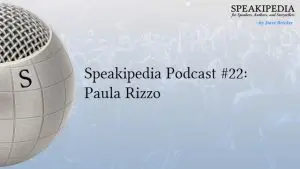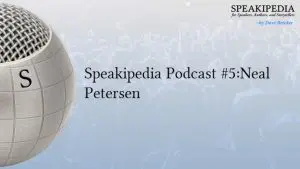I was already in my fifties when a PhD Psychologist friend confirmed that I was “slightly autistic.”
That diagnosis—informal as it was—helped me understand a number of things about myself:
Why I had so much trouble relating to other kids when I was young?
Why I’ve always felt like an anthropologist from another planet sent here to try to figure out why humans think and behave the way they do.
I’m not a trained psychologist, but as I’ve learned more about autistic savants and high-functioning autistic people, I’ve come to suspect that the speaking industry harbors a disproportionate number of them.
Why is that?
Because if you really aren’t like the other kids, you naturally embark on a journey to understand why.
Is there something wrong with you or is the world really crazy?
And on that journey, you begin to build some of the communication circuitry that you weren’t born with.
You compensate and fill in the gaps and find a formula that allows you to connect with others.
Your explorations actually do reveal unique insights about why humans think and behave the way they do.
And you discover that your way of looking at the world can be of great benefit to those who are living and working “on autopilot” or struggling to survive in a crazy world where everyone around them is.
I’ve always said that people are like strings of Christmas lights.
In most cases, you plug them in and they light up. That’s what’s expected.
But show me a string with a few extra bright lights on it and I’ll show you a few sockets on that same string that are missing bulbs.
Many such wacky, colorful people make excellent speakers.
They see the world in innovative ways and they’ve spent their lives trying to find ways to make sense of the world.
If you’re one of those people who’s bright, but perhaps socially awkward or just “different,” don’t let your “unlike-everybody-else-ness” discourage you.
Your perspectives might just be what’s needed to change the hearts, minds, and fortunes of others.





